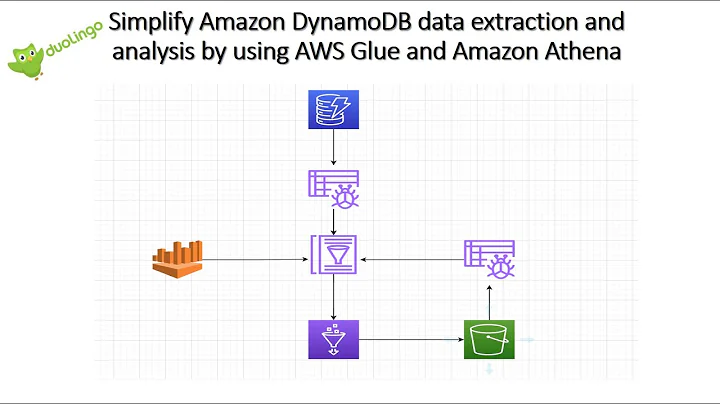"IN" statement in dynamodb
KeyConditionExpression's cannot use the "IN" operator (see http://docs.aws.amazon.com/amazondynamodb/latest/developerguide/QueryAndScan.html#FilteringResults). The idea with KeyConditions/KeyConditionExpression in a query operation is to more efficiently read pages of items from DynamoDB, since items with the same hash key but different range keys are stored contiguously and in sorted order. The IN operator would require extracting small portions of certain pages, which makes the Query operation less efficient, so it is not allowed in KeyConditions. You would want to add that as a FilterExpression instead, which is a convenience parameter to reduce the number of items returned from DynamoDB, but does not impact how the data is read from DynamoDB.
Related videos on Youtube
Hadrien Pierre Mazelier
Updated on July 09, 2022Comments
-
Hadrien Pierre Mazelier almost 2 years
I have a "Users" table, here is a sample :
{ username:"haddox", formattedPhoneNumber:"676767676", verified: 0, }My wish is to retrieve all users whose formattedPhoneNumber is contained in an array of phone numbers (retrieved from my contacts). I created a secondary index, with verified as HASH and formattedPhoneNumber as RANGE. Here is my try :
var params = { TableName: "Users", IndexName: "FormattedPhoneSecondaryIndex", KeyConditionExpression: "verified = :v AND formattedPhone IN :n", ExpressionAttributeValues: { ":v":1, ":n": ["672053916", "642117296"] }, ProjectionExpression: "username, formattedPhoneNumber" }; dynamodb.query(params, function(err, data) { if (err) console.log(JSON.stringify(err, null, 2)); else console.log(JSON.stringify(data, null, 2)); });But I get the following error :
Invalid KeyConditionExpression: Syntax error; token: \":n\", near: \"IN :n\"",Is there something wrong with the IN keyword ? Maybe there is another way to achieve this ?
-
jarmod over 8 yearsDid you try "(verified = :v) AND (formattedPhone IN (:n))"?
-
Hadrien Pierre Mazelier over 8 yearsHi! I just tried but it didn't worked..
-
Nirmal Goswami over 7 years@HadrienPierreMazelier can you paste you working example
-
-
Hadrien Pierre Mazelier over 8 yearsHm ok, thank you! That means it will get all items from db and then filter it right ?
-
Jeffrey Nieh over 8 yearsYes - so keep the KeyConditionExpression on verified = 1, but add a filter expression for formattedPhoneNumber IN [ ]. That way the request will only fetch the items where verified = 1, then perform the filter.
-
Min Soe almost 8 years
scanExpression.filterExpression = @"Id IN (:val)"; scanExpression.expressionAttributeValues = @{@":val":[idList componentsJoinedByString:@","]};Is that how to use? I have tried putting the array without success, that's why joining the array -
Nirmal Goswami over 7 years@MinSoe i have same issue like you.how to use In operator like you
-
cryanbhu almost 6 yearsthis is merely using the IN inside a FilterExpression, it still reads lots of data and then filters the result before returning, is not actually efficiently reading only rows which satisfy the IN condition.
-
Min Soe almost 6 yearshi @cryanbhu could you please suggest? yes, we know it is inefficient but that's the only way we were able to figure out that time.
-
cryanbhu over 5 yearsi was just reiterating the top answer's point that there is no way to efficiently do the IN equivalent in DynamoDB. To optimize query efficiency you'd have to rethink the data perhaps split the list items into columns and then have indices on that column. A good understanding of SQL vs noSQL in the decision phase would've helped a ton.














